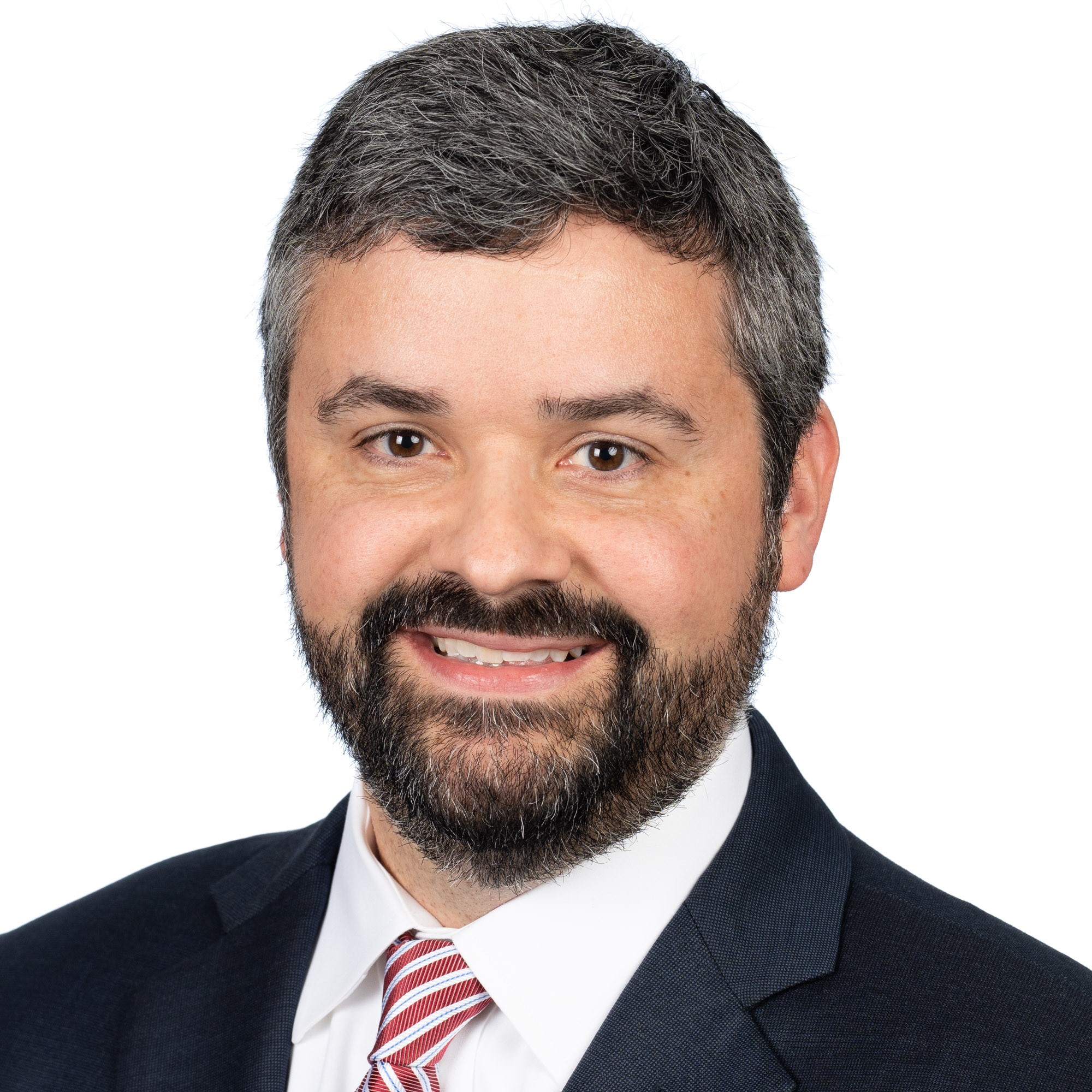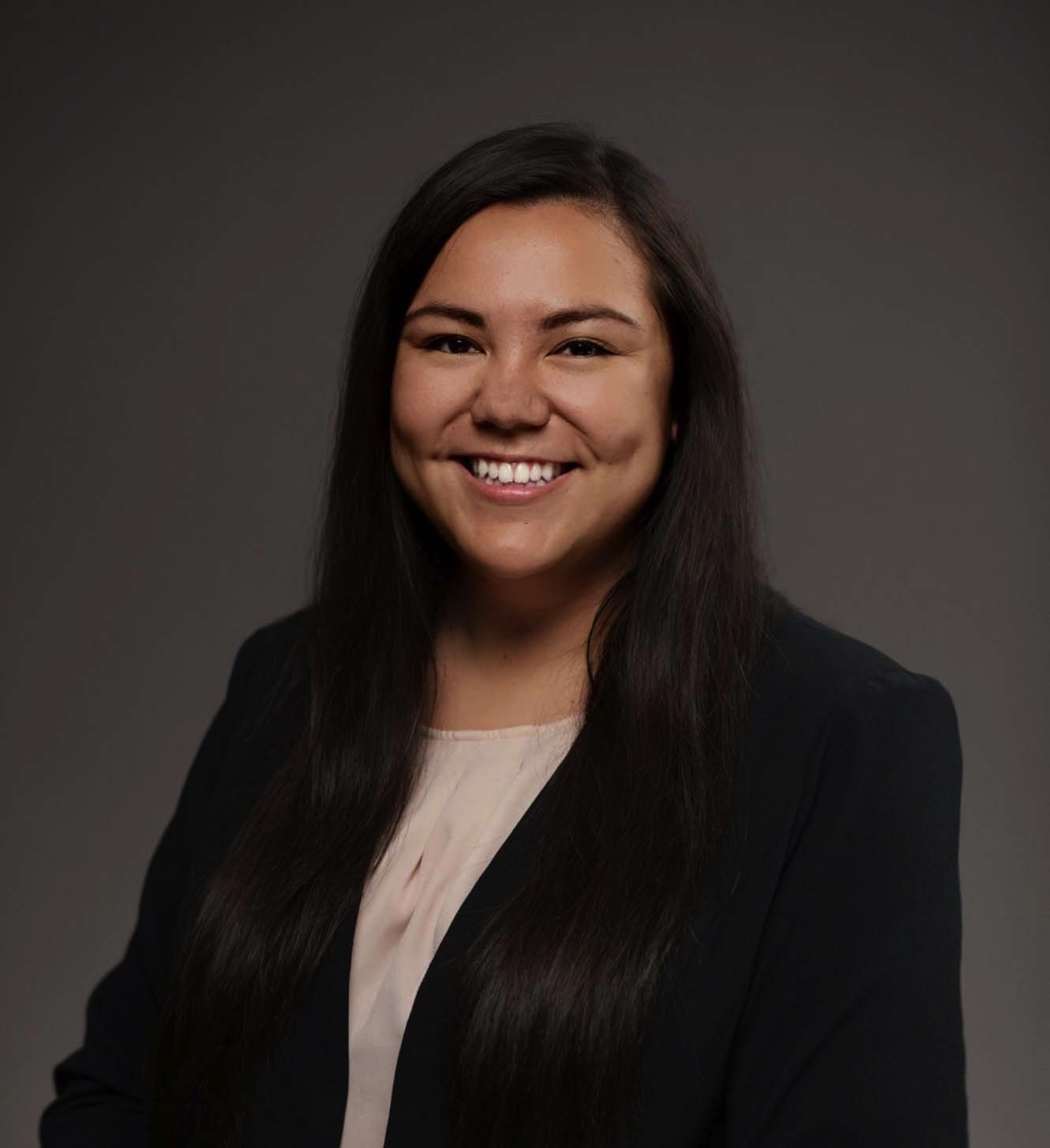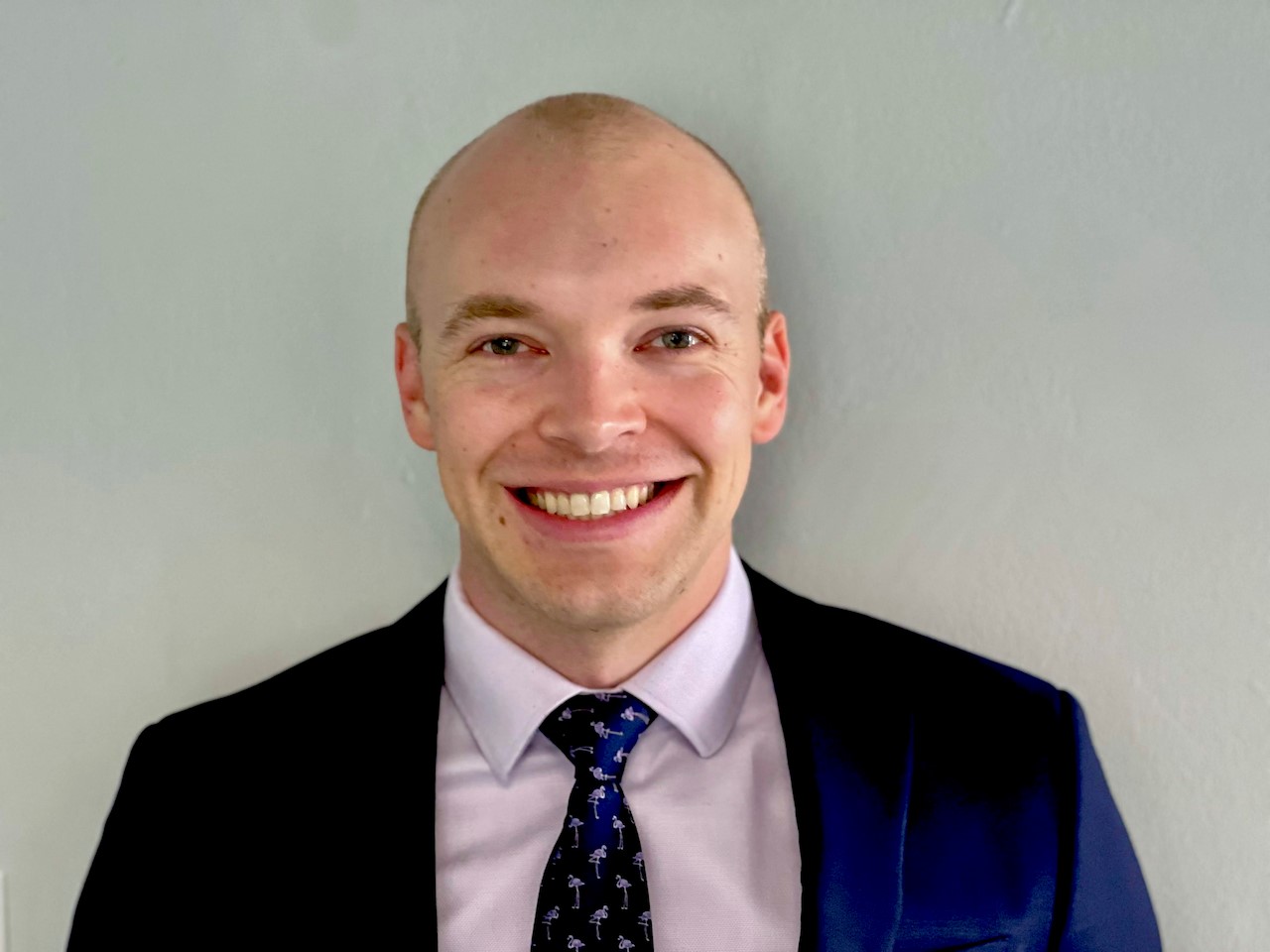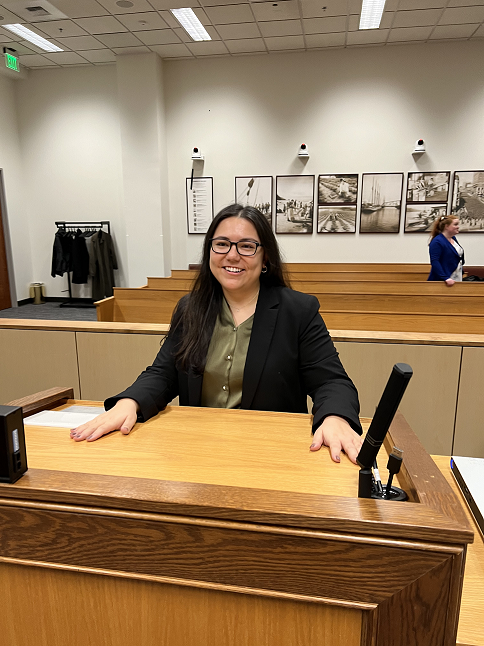At GTH, we strive to get our new attorneys into court – not just as observers but as active participants. Today, one of our newest associates, Katie Chan, argued in the Washington Court of Appeals Div. II. Katie came to GTH in the fall of 2023 from clerking at the Court of Appeals for the prior two years. It was a homecoming for her and she did a remarkable job. She made all of us at GTH proud. (Note: this picture was taken before, not during, the oral argument.)
News & Highlights
Inspired by over a century of tradition. Legendary for quality and confidence in all that we do. Ready to help no matter what your legal needs. The lawyers of Gordon Thomas Honeywell – privileged and honored to serve you.
GTH Partners with Sheridan Elementary
We at Gordon Thomas Honeywell are proud to begin another year of supporting and mentoring the students at Sheridan Elementary School on the Eastside of Tacoma. Seven years ago, GTH “adopted” a first-grade class, and we gave each student a book to take home during winter break. We continued the tradition with these students every year through the 5th grade. This year, we adopted a new first-grade class, and we cannot wait to watch these kids grow and matriculate.
Lessons in Land Use Law (From a Mid-Career Attorney)
Written by Reuben Schutz
This content originally appeared in Tacoma-Pierce County Bar Association’s Pierce County Lawyer Magazine. It has been reprinted here with permission from TPCBA.
I would be lying if I said I always wanted to be a land-use attorney. Frankly in law school I didn’t know the practice existed. As it turned out, I found the practice by serendipity.
In 2017, I was an associate at Gordon Thomas Honeywell in Tacoma practicing plaintiff medical malpractice – and I was miserable. To be clear, my mentor at the time was fantastic and I was learning a ton. Still, I found myself often wondering how I ended up suing doctors. My father and sister are both doctors; another sister is a nurse. I tip-toed around the subject of my work at family gatherings.
Luckily for me, I work in a very supportive firm. When it became clear that medical malpractice was not for me, I was encouraged to join the firm’s land use group. For me, the practice, and more importantly the people, were a perfect fit. The rest is history; well my history anyway.
As a land use attorney, I get to use my law degree to resolve complicated problems. (Or at least that is what I attempt to do.) In the course of doing that I like to think that I help make projects better, which is pretty cool. But it is a challenging practice, and some days it feels like what I don’t know could fill books. Still, I have learned a couple of things over the past years. Here are a few of them.
Mind the Deadline
The deadline under the Land Use Petition Act (LUPA) is no joke. It is 21 days, it is jurisdictional, and absolutely no grace is given. A partner once told me: “Service makes me nervous.” LUPA service gives me ulcers.
The City Clerk was served on the 21st day but it happened at 5:02 p.m.? Sorry, better luck next time.
The Deputy City Clerk came out and accepted service on the Clerk’s behalf? Well tough.
I always try to serve LUPA petitions at least several days early. But it doesn’t always work out that way, and I have found myself driving to Puyallup at 3:30 on the 21st day sweating bullets.
To make matters worse, it is often not clear when the 21 days starts running. Was the land use decision mailed to the applicant? Then add three days to the deadline. Wait, it was emailed? Never mind, remove those three extra days. Wait again, it was emailed and mailed? That is not covered by the rule!
Of course, sometimes it is not even clear whether the decision being appealed is subject to LUPA. Maybe it needs to go to the Shoreline Hearing’s Board, or the Growth Management Hearings Board, or the Environmental Hearings Board. Or it could be a Declaratory Judgment action or an APA appeal. When in doubt I file in both/all. Better to drop an appeal claim later than discover you are in the wrong place after the deadline has passed.
As if that was not enough to worry about, there is exhaustion. Have you exhausted all administrative remedies (that change jurisdiction to jurisdiction, and each have their own specific deadline)? You mean you did not realize that in a certain local jurisdiction you had to appeal to an Appellate Examiner that reviews the Examiner’s decision?
Bottom line: when it comes to LUPA appeals, minefields abound.
Always Go to the Property
Satellite imagery is amazing and getting better all of the time. These days you can pull up detailed images of a property in seconds. You can view it on your computer from different angles. It is a new age.
But for land use there is no substitute for having your feet on the ground. It is rarely exactly as you pictured, and you are almost sure to notice something you would have otherwise missed. It is just easier to see how things fit. If I had a nickel for every time I said: “Oh now I see what you mean” during a site visit, I would have a handful.
Another reason to go to the property – it is important to clients. Personal injury plaintiffs often want their day in court; property owners want you to see and understand the property. A phone call or zoom to discuss overheads does not satisfy.
Do In Person Meetings – Onsite if Possible
It’s a Zoom/Teams world. There’s no denying the efficiencies of video meetings. But so much of land use is about building trust and relationships. While you may need to push back on some conditions, you still need to cooperate with the local jurisdiction on many others. And you will need to do the same on the next case with the same people. Face to face matters for relationships.
Another reason in person is key is that there are often lots of drawings, surveys, engineering plans involved – big papers with lots of small lines and words. All of this is best worked out around a table in person. Sometimes you need to push for that, and it costs the client money, but it generally pays off.
Better yet, try to meet on site. Sometimes that makes all the difference. One time I had hit a brick wall trying to convince fire protection authorities that paving and dramatically widening a rural driveway adjacent to wetlands was a bad idea for a small kennel business. Around and around we went but to no avail. Eventually I was able to get the fire marshal to meet on site. He took one look and said: “Oh yeah, the existing drive is just fine.” That one site visit probably saved the client’s business.
City/County Attorneys Can be Your Friends
So much of the real land use work happens without any litigation or prior to any litigation. It is often necessary to work with city or county staff to get through sticking points and issues and attorneys are not always involved. As good as most staff are at their jobs, whether as planners, engineers, etc., they are not lawyers. They do not stay up on current cases or know the intricacies of constitutional takings law or other legal limits on their authority.
That is where city/county attorneys can be very helpful. There have been times when I have asked (nay begged) staff to call the attorney. Sometimes the attorney and I will disagree, but often we’re on the same page or at least have the same understanding of the law. And when that happens it can save potentially weeks of back and forth with staff, not to mention the associated costs.
I really enjoy working with nearly all of the City and County attorneys that I regularly practice with and against. Civility is the norm with this group, and that makes practicing fun.
Whole Lot of New Faces
The Great Retirement that accompanied the pandemic did not spare city and county staffs, including planners, engineers, etc. There has been a ton of turnover in the last several years. This means that there are many new people, often at the beginning of their careers.
The institutional knowledge gained over a career in public service is not easily or quickly replaced. The result has often been increased wait times for decisions. This can be challenging, especially for clients for whom time equals money. The only thing for it is to be persistent, practice patience, and make sure the client’s expectations are in line with current reality.
Well, those are a few things I have learned, sometimes the hard way. If any young/new attorneys want to know more about the practice of land use law, I would be more than happy to meet with them and discuss it.
Sandra Day O’ Connor
It is with a heavy heart that we acknowledge the passing of Justice Sandra Day O’Connor, today, at the age of 93. Her contributions to the legal community have left an indelible mark, and her legacy will undoubtedly continue to inspire generations to come.
Justice O’Connor was the first woman named to the Supreme Court in 1981. During her trailblazing career, Justice O’Connor became a symbol of excellence in the legal field.
As we reflect on her life and achievements, let us remember the profound impact she had on the legal community. During this difficult time, our thoughts are with Justice O’Connor’s family, friends, and all those who admired her remarkable career.
KCBA Profile: Sal Mungia
This article was written by Joanna Boisen and was first published in KCBA’s Bar Bulletin. It is reprinted here with KCBA’s permission.

Next year, 40 years will have passed since Sal Mungia first started practicing law. Almost four decades later, he still loves being a lawyer. He still loves his firm, Gordon Thomas Honeywell. He still loves the competition and the collaboration that comes with building and maintaining a wildly successful practice. And he still loves the idea that another chapter in his career is yet to be written, because in the fall of 2024, Sal will run for Justice Susan Owens’s seat on the Washington State Supreme Court.
What brought him to this point in his career is a storied, impressive journey. Comprehensively discussing his practice, myriad accomplishments, and magnetic personality would take a novella, not an article, but the short of it is Sal
has been working towards this moment for a lifetime.
Born to a low-income immigrant family, his father from Mexico and his mother from Japan, Sal grew up in Tacoma understanding firsthand the tremendous difference access to justice makes for underrepresented communities. “I know it’s cliché but there’s a reason that cliché exists: my parents played a crucial role in who I am today; economically we didn’t have much when I was growing up, but what I did have was two parents who loved me, who cared about me, who sacrificed for me,” he said. Seeing them mistreated and discriminated against imprinted a desire in Sal to advocate for those treated unfairly and unlawfully. It also solidified what he knew from a very early age — he wanted to advance justice for communities and constituencies like the one he came from.
That is why after graduating from Pacific Lutheran University he attended Georgetown University Law Center to pursue a career in the law. After law school, he clerked for Supreme Court Justice Fred Dore and U.S District Court Judge Carolyn Dimmick, and then in 1986 joined Gordon Thomas Honeywell (GTH), where he was mentored by future U.S. District Judge Ron Leighton and well-respected practitioner Jack Connelly, learning directly from two of the best jurists in the state. “Both had different styles and approaches to the law,” said Sal. “Both were, and are, the best of our profession — they both played key roles in my development as an attorney,” he said. Today, Sal is the one doing the teaching and the leading, serving as GTH’s managing partner while maintaining a very busy and demanding law practice.
Four decades of broad experience will serve him well if he joins the Washington Supreme Court — not just because of its scope, but because of his approach to practicing law. From running civil rights class action trials, to advising companies and nonprofits, to representing individuals, Sal has litigated in state and federal courts, represented defendants and plaintiffs in diverse disputes, and has argued at every appellate court level. His ability to consider all sides of an issue, regardless of whom he’s representing, is extraordinary. “I want to know the weaknesses of my cases as well as the strengths,” said Sal. “I am a hard worker. I listen. I believe in the rule of law,” he said.
If elected, he will be one of nine justices who decide some of the most important issues facing our state. But that is only one of many aspects that draws Sal to this role. “I look forward to working collaboratively with eight other members of the Court,” he said. “I look forward to promoting access to the justice system, to encouraging lawyers to represent clients pro bono, and to continuing to promote equity and diversity within our profession,” he said. This is the work that brings him the most satisfaction and professional fulfillment.
On a personal level, however, nothing brings Sal as much joy as his four kids and grandson. “I am not kidding when I say that when they are just with me, that, by itself, makes me happy. Hands down, best part of my life.” For this reason, Sal wants to leave the world a better place for those he loves most. Part of that includes assuring access to justice is affordable for all:
My greatest concern is that all of us in the profession become too focused on serving our paying clients, on making money, and not stepping back and realizing that we all have the ability to change someone’s life because we have specialized skills. My greatest concern is that we, as lawyers and judges in this profession, don’t fully embrace the value that our profession espouses of ensuring that everyone has access to the justice system — we must not only talk the talk, we must also walk the walk.
No one has modeled and lived this philosophy more authentically than Sal. “Sal has always been a relentless and compassionate advocate for the disadvantaged over decades,” said Mark Johnson, partner at Johnson Flora Sprangers and co-chair of Sal’s Supreme Court campaign. “He is — far and above — the best of us,” he said. In addition to a comprehensive pro bono practice, his historical devotion to public service is impressive. Sal has served as a Washington State Bar Association president, chaired the Campaign for Equal Justice, chaired the Washington State Access to Justice Board, served on the Tacoma Human Rights Commission, and served on the ACLU and Lawyers Committee for Civil Rights Under the Law board of directors. Sal has also received more awards and professional recognitions than are practicably listable here, including the Charles A. Goldmark Distinguished Service Award for his extraordinary contributions to the justice system.
If elected, he will continue to promote access to justice and educate others about the crucial role civil legal aid providers and pro bono attorneys play throughout the state — after all, he wants to stay true to what has driven him since childhood. “Since second grade I’ve wanted to become a lawyer and now I do that for a living,” said Sal. “Lawyers can change people’s lives and sometimes even change society, law, and policy for the better,” he said. “My hope is to continue to make positive changes for our community in a more systemic manner if I am elected to the Court.”
This may give him less time to tap into his adventurous side, like cross country skiing Mt. Rainier by moonlight and building an overnight snow cave with his good friend Mark Clausen, but to Sal, it’s all worth it. “I want to make the biggest impact that I am able in the time I have left on this earth,” he said. What better way to achieve this valiant goal than by serving as a supreme court justice and leveraging 40 years of experience, vision, and heart to benefit not only the bench, but all of us.
Richard Lumley Partners with FVAP on Amicus Brief Protecting Sexual Assault Survivors

GTH attorney Richard Lumley collaborated with the Family Violence Appellate Project (FVAP) to submit an amicus brief in Desean v. Sanger, No. 101330-2, — P.3d —- (Wash. 2023). On October 5, 2023, survivors of sexual assault in Washington State prevailed in this case, receiving a strong published decision from the Washington State Supreme Court.
The issue before the Washington Supreme Court in Desean was whether respondents in Washington’s Sexual Assault Protection Order Act (SAPOA) proceedings would also be entitled to raise a criminal affirmative defense that they reasonably believed the petitioner had capacity to consent when incapacity is at issue. Washington’s SAPOA allows a victim of unwanted sexual contact to seek a civil protection order against the perpetrator. Under the SAPOA, a court enters a sexual assault protection order (SAPO) if it finds by a preponderance of the evidence that the petitioner has been a victim of nonconsensual sexual conduct or penetration by the respondent. Respondents are afforded an opportunity to testify and provide evidence in their defense during a SAPO proceeding.
The amicus brief submitted by Gordon Thomas Honeywell and FVAP highlighted that allowing respondents to raise such a defense in SAPO proceedings would not only contravene the Legislature’s intent but also result in harmful effects on survivors. The amicus brief presented social science research on the prevalence of sexual assaults versus those reported and the disparate impacts that sexual violence has on marginalized communities.
In a highly favorable decision for sexual assault survivors, the Supreme Court overruled the Court of Appeals and determined that a respondent is not entitled to present a criminal affirmative defense under the SAPOA. The Supreme Court reasoned that the SAPOA provides a civil remedy to survivors and functions independently from criminal proceedings and that the Legislature’s omission of affirmative defenses in the statute was intentional. The Court further held that a petitioner seeking a SAPO based on nonconsensual sexual penetration need not prove the respondent’s intent. In such cases, the relevant inquiry for the court is whether the petitioner had capacity to consent, and if the answer is no, the respondent is not entitled to raise an affirmative defense that they reasonably believed otherwise.
The importance of this case cannot be overstated. As a result of the Supreme Court’s decision, SAPOs will continue to be available as intended to survivors, without the added burden of importing criminal standards in these special proceedings meant to protect survivors.
The following organizations joined in GTH and FVAP’s amicus brief: King County Sexual Assault Resource Center; National Center on Domestic and Sexual Violence; Seattle University School of Law Family Law Center; and the Network for Victim Recovery of D.C. The full amicus brief is available here.
Welcoming Associates Katie Chan & Bryce Knutzen
Gordon Thomas Honeywell is pleased to welcome new associate attorneys Katie Chan and Bryce Knutzen to the firm!

Katie Chan graduated cum laude from the University of Michigan Law School and comes to GTH after serving two years as a judicial law clerk to Judge Linda Lee of the Washington Court of Appeals, Division II. As a law student, Katie worked with the Civil Rights Litigation Initiative, the American Civil Liberties Union of Washington State, and the American Civil Liberties Union Voting Rights Project, where she performed research and drafted legal documents related to issues including fair housing, employment discrimination, student rights, racial justice, criminal procedure, public defense, and voting rights.

Bryce Knutzen joins GTH after graduating magna cum laude from Villanova University Charles Widger School of Law. During his time in law school, Bryce served as a legal intern to the Appellate Division of the Thurston County Prosecuting Attorney’s Office, where he conducted legal research and drafted briefs for appellate cases. Bryce also worked as a student attorney and tax intern, where he represented clients navigating the complex American tax system.
Stephanie Bloomfield Inducted into American College of Trial Lawyers

This weekend, GTH attorney Stephanie Bloomfield will be inducted into the American College of Trial Lawyers, a prestigious recognition from the preeminent organization of trial lawyers in North America dedicated to maintaining and improving the professionalism, ethics, and administration of justice encompassing trial practice. This honor is an invitation-only fellowship of trial lawyers in the United States and Canada for a select number of attorneys who have demonstrated the very highest standards of trial advocacy, ethics and integrity, and professionalism throughout their careers.
Stephanie acknowledges, “This is the most meaningful accomplishment of my career, second only to becoming a GTH partner. I am honored that my peers and opposing counsel have chosen to recognize my work with this invitation.”
Stephanie came to GTH in 1994 after graduating from the University of Washington School of Law with the desire to become a trial lawyer and work alongside many renowned litigation attorneys who were GTH partners at that time. Uniquely, GTH offered opportunities in defense, plaintiff, and business litigation—and Stephanie wanted to learn from it all.
“The firm and its lawyers have a reputation in trial advocacy, and in giving associates the opportunity to be involved in trial work at a higher level. While developing the skill set takes hard work and dedication, I do not believe I could have achieved this honor without the experiences afforded to me at GTH.”
Stephanie fondly remembers the lessons learned early in her career from some of her many mentors. “From Ron Leighton, I learned that jurors are smart and have common sense. Don’t forget your audience. From Mark Honeywell, I learned that even though the system is adversarial, we are working to a just result and need to make the effort to work collaboratively with opposing counsel. From Rick Creatura, I learned the importance of opening statements and a theme. From Jack Connelly, I learned that the important part of a case was finding the injustice and showing the jury how to right it. From Sal Mungia, I learned that heartfelt emotion and empathy have a place in trial – along with not being too serious. From Brad Maxa, I learned that being a good defense lawyer was properly evaluating cases and being respectful to plaintiffs and witnesses.”
These experiences have contributed to a successful practice in employment, business, injury, and commercial litigation, as well as estate litigation and contract disputes. Stephanie holds numerous honors and recognitions for her work, including American Board of Trial Advocates (ABOTA) Trial Lawyer of the Year and Washington Super Lawyers’ Top 50 Women Lawyers in Washington and Top 100 Washington Super Lawyers.
Over her career, Stephanie has served in a variety of leadership positions with the Washington State Bar Association and Tacoma-Pierce County Bar Association. She is also a member of the American Board of Trial Advocates, American Inns of Court, Washington State Association for Justice, American Bar Association, and Order of the Barristers.
This recognition by the American College of Trial Lawyers is a testament to the hard work, dedication, and skill that Stephanie has and continues to put into her practice each day. Her advice to attorneys seeking a career as a litigator? “Take every opportunity. Work with talented trial attorneys – this includes opposing counsel. Observe and learn from everyone in the courtroom. You will remember losses far longer than your victories; learn what you can and move on. Don’t get so caught up in the adversarial and competitive nature of trial work that you forget to be a normal human, and remember to maintain your cool, your professionalism, and respect even when all is falling apart around you. “
And, most importantly, “Ask questions, remain curious and interested, and work hard.”
Access to Justice Conference, Sept. 28-30
Gordon Thomas Honeywell is pleased to be a sponsor of the Alliance for Equal Justice’s Access to Justice Conference, held on September 28-30 at the Tacoma Convention Center (and virtual). The Alliance for Equal Justice comprises a network of Washington-based organizations working together to coordinate and deliver civil legal aid to individuals and communities experiencing poverty and injustice. Every two years, the Access to Justice Conference convenes individuals across Washington who are committed to dismantling legal systems of oppression and poverty and offers systemic advocacy strategies, skills-building, and training.
The 2023 Access to Justice Conference theme is “Shifting Justice Towards Accountability and Trust” and specifically focuses on the intersectionality of systems that lead to injustice and collectively make progress on breaking down barriers to advocacy. The conference’s working sessions will be led by community organizations and groups developing strategies to change the systems perpetuating systemic oppression.
For more information about the conference and to register, visit: http://allianceforequaljustice.org/accesstojusticeconference/

GTH Attorneys Recognized as Best Lawyers in America, Lawyer of the Year

This year, five GTH attorneys have been recognized by Best Lawyers in America for their excellence across practice areas offered by the firm.
Managing Partner Salvador Mungia has been awarded the Lawyer of the Year award for his civil rights practice in Tacoma, Washington. He has also been recognized by Best Lawyers for his appellate practice and work in commercial and personal injury litigation.
Best Lawyers also recognized GTH attorneys William Lynn, for his work in environmental, land use and zoning, and real estate law; Donald Cohen, for his work in environmental and municipal law; Brad Jones, for his work in environmental law; and Julie Dickens, for her work in trusts and estates.
Best Lawyers is based on peer review to reflect the consensus opinion of top attorneys within the same geographic and practice areas. “Lawyer of the Year” is awarded to individuals who receive the highest peer feedback for a specific practice area and geographic region. Only one attorney may be recognized in their practice area and geographical location for this award.

